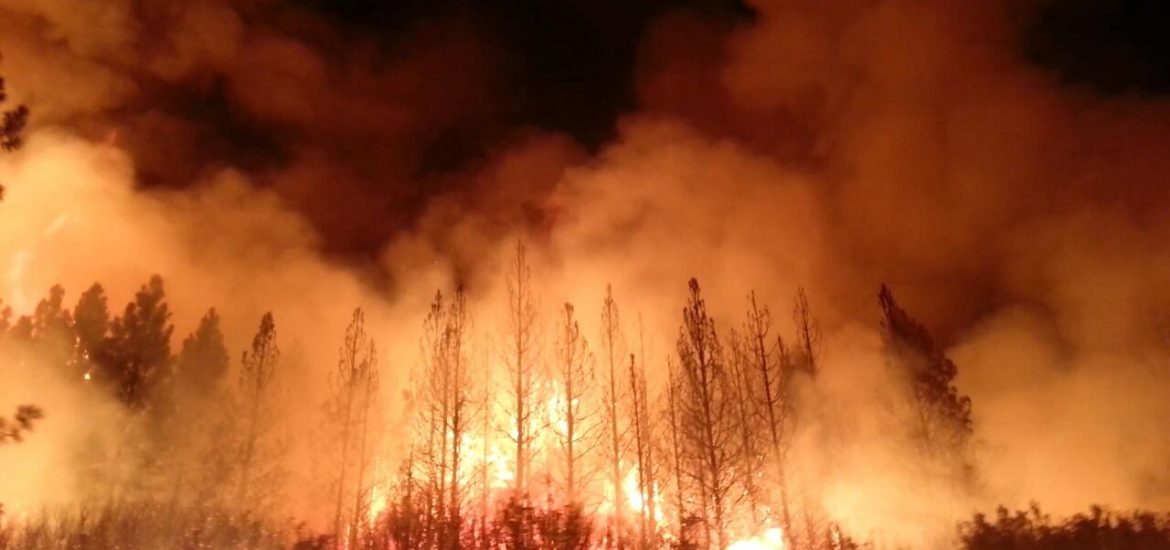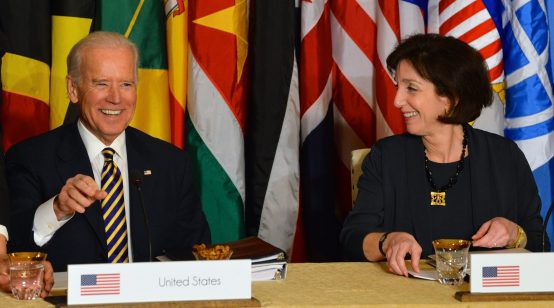
The brushfires currently ravaging Australia have cast a harsh light on the climate-sceptic and vocally pro-fossil fuel policies of successive Australian governments. What’s more, with the fires having thus far caused damages in excess of $4.4 billion, the link between warmer temperatures and the higher frequency and intensity of blazes are certain to cause pain long after they have been extinguished.
Australia is currently the world’s largest exporter of coal and the second-biggest exporter of liquefied natural gas (LNG). At the same time, Australian coal extraction is projected to rise by 34 percent this decade, according to the United Nations Environment Programme’s Production Gap report – not a surprising find considering that Canberra provides US$8 billion worth of annual tax-based subsidies to the fossil fuel industry.
The Australian economy’s continued reliance on fossil fuels is driving a dangerous trend that is no longer occurring in isolation but is affecting the entire globe. The country’s coal and gas exports total more than 1.1 billion tonnes of carbon dioxide – or twice its domestic emissions – making Australia the world’s third-biggest exporter of fossil carbon, behind Saudi Arabia and Russia. And with the ongoing bush fires impacting countries as far afield as New Zealand, it is clear that the scale of the challenge can no longer be contained within a country’s boundaries.
Yet if we should take away one lesson from the tragic events unfolding in Australia, it is that their impacts are feeding into a growing global consensus that anthropogenic climate change is a fact, not an illusion – and that ever more people are willing to adapt their way of living in order to protect the climate. As a recent polling by Ipsos-EDF—conducted in late 2019 involving 24,000 people in 30 countries—revealed that 53 percent of respondents agreed that a solution to combating the climate crisis must require lifestyle changes.
However, the Ipsos-EDF survey also found a distinct disconnect in the perception of climate change in countries which rely on fossil fuel exports, including Australia. While approximately 92 percent of respondents overall said they were convinced climate change was a reality, with 69 percent blaming human activity, 23 percent blamed natural or unknown factors. This was particularly the case in countries with high carbon-dioxide emission levels, including Saudi Arabia, the US, China and Australia.
In fact, 45 percent of Australians responded that they did not think climate change was happening and that it was man-made. Only Saudi Arabians (59) and Norwegians (49) shared this point of view in such significant numbers. At the same time, a majority of 70 percent of survey participants considered that national governments had the primary responsibility to take action, far ahead of individuals and employers. This attitude was coupled with the view that governments are not proactive enough, with only 48 percent believing state action was currently sufficient, with Europeans exhibiting the greatest criticism of their national policies.
Yet despite a majority of citizens in many countries considering combating climate change as a government prerogative, this increasing public concern has not translated into policy changes. Despite its history of dangerous fires like the ones now burning, Australia continues to boost fossil fuel production, mostly for export. The country is currently assessing proposals for 53 new coal mines in an effort to double coal production by 2030, and is increasing its LNG capacities as well.
That Canberra would do so is only consequential for a country that has laboured consistently for years to sign new deals with other countries to export its fossil fuels to, all backed by the powerful fossil fuel industry. Already back in 2016, British research group InfluenceMap reported that Australian oil and gas lobbyists had allocated $4 million for “obstructive spending” to further policies relating to lower emission targets and the removing of measures to support renewables.
Still, Australia’s oil and gas premier lobbying organization, the Australian Petroleum Production and Exploration Association (APPEA), argues that LNG exports are helping the global energy transition, rather than harming the climate. The fact that Federal Energy Minister Angus Taylor echoed these claims in June 2019 only showcases how difficult it will be to untangle the government from the anti-climate lobby’s grip.
Ultimately, Australia is not the only fossil fuel exporter suffering from the effects of climate change. Many of the countries surrounding the Persian Gulf, including major oil and gas exporters such as the UAE, Qatar, Iraq and Iran, are projected to find all or part of their countries uninhabitable as a result of climate change. Turkey, for example, is already increasingly diverting water from the Tigris and Euphrates for its agricultural needs and depriving its southern neighbour, Iraq, of supplies.
Climate scientists at the Massachusetts Institute of Technology used computer modelling to predict that temperatures and humidity in the Gulf region would reach a level that would prevent even the fittest human beings from operating effectively. The modelling said Abu Dhabi, Dubai, Doha, Dhahran and Bandar Abbas would be uninhabitable by the late 21st century as temperatures would permanently reach up to 35 degrees, “at which point life in the region will, to all practical intents and purposes, be over.”
The scale of natural disasters like Australia’s brushfires is leading to increasing questions about whether fundamental change can be brought to how key energy exporters view their fossil fuel industries. The question is: will these events be the wakeup call the globe needs?
Wildfires have raged across the globe this year. Picture credit: Wikimedia





